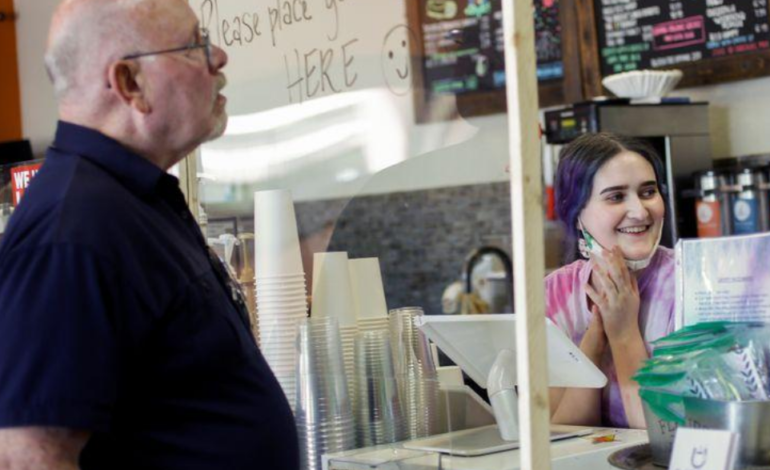ATLANTA, GA — On Thursday, the Centers for Disease Control and Prevention (CDC) released a voluntary set of guidelines for businesses and workplaces as well as schools and childcare programs on how they can most safely reopen their doors during the coronavirus pandemic.
The guidelines are the most specific instructions yet from the CDC and include various “decision tools” for helping organizations decide when and how best to reopen.
Among the questions asked as part of the decision tools is whether an establishment is prepared to encourage social distancing among patrons and whether it encourages flexible leave among employees.
For youth programs and camps, sample questions include whether they can stagger drop-offs and limit how often kids are mixed into groups, as well as having a plan if children or employees on-site get sick.
Large parts of the United States have been on lockdown for two months, as health and government officials have implored people to stay home, limit social contact and shop only for essentials. Michigan’s stay-at-home order ends on May 28.
The new guidelines came after weeks of lawmakers and state officials asking for more detailed suggestions from the CDC for reopening.
President Trump has repeatedly said that states should make their own decisions on timing and how much testing is needed. He also said he thinks schools should reopen.
“I think they should open the schools, absolutely. I think they should,” Trump told reporters this week. “And it’s had very little impact on young people.”
The suggestion runs counter to recommendations from Trump’s top infectious disease expert, Dr. Anthony Fauci, who said the impact on children is still unknown.
He also said there is a “real risk” of triggering an outbreak that may not be controllable.
Fauci testified in front of the Senate Committee on Health, Education, Labor and Pensions about the road to reopening businesses in the U.S. on Tuesday, during which he said that the United States should continue to contain and mitigate outbreaks until a vaccine is ready.
He also said that despite the race to create a workable vaccine, which many have said could be ready in 12 to 18 months, there are no guarantees that it will be effective; and safety concerns are present as well.
“There’s no guarantee that the vaccine is actually going to be effective,” he said, according to CNBC.
Fauci also said there is concern that the vaccine could backfire and strengthen the virus.
There have been at least two vaccines in the past that have produced a “suboptimal response,” he said. “And when the person gets exposed, they actually have an enhanced pathogenesis of the disease, which is always worrisome. So we want to make sure that that doesn’t happen. Those are the two major unknowns.”
Fauci added that he’s, “cautiously optimistic that we will have a candidate that will have some degree of efficacy, hopefully a percentage enough that will induce the kind of herd immunity that would give protection to the population at home.”
The United States had more than 1.4 million coronavirus cases as of Thursday and more than 86,000 deaths attributed to the virus, numbers that have led to concern among lawmakers as to what may happen when social distancing rules are relaxed.
Coronavirus response coordinator Dr. Deborah Birx said she was still working on the document as of last week and also that she is working with the CDC on a range of new products.
“We’re working with the CDC on a whole series of products, from how to improve community mitigation, what to do about contact tracing, how to improve surveillance and certainly these more detailed guidelines about child care and camps,” Birx told CNN.
To view the CDC’s reopening guidelines, visit https://www.cdc.gov/coronavirus/2019-ncov/community/organizations/businesses-employers.html (businesses and community organizations) or https://www.cdc.gov/coronavirus/2019-ncov/community/schools-childcare/index.html (schools and childcare facilities).






Leave a Reply